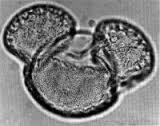In This Section
Kevin Kearney
Kevin Kearney (MPhil Candidate)
Investigations of human-environment interactions on the Iveragh Peninsula, County Kerry, South-West Ireland
Supervisor: Dr. Ben Gearey
E-mail: kevin.kearney@umail.ucc.ie

| Overview |
Understanding human–environment interactions is essential to identifying the social dynamics of past societies. A number of studies have addressed these issues, with special attention given to settlements, in addition to palaeoenvironmental and palaeoeconomic reconstructions and the effects of changes across broad timescales. The aim of this research is to analyse the modes of human–environment interaction in the Glencar region of the Iveragh Peninsula, Kerry. Knowledge of these interactions is crucial to understanding the cultural and social dynamics of the region, particularly concerning the visible archaeological record.This region was selected for study due to its diverse archaeological landscape and abundance of undisturbed peatland. The projects objective is to gather and analysis palaeoenvironmental, palaeohydrological and palaeoclimatic information from natural archives, such as peatlands. This synthetic approach will allow the palaeoenvironmental characteristics of the studied area and their influence on human adaptation strategies, as highlighted by changes in agricultural and ecosystem management practices, to be defined.
The potential for palynology as a technique for palaeoenvironmental reconstruction has long been established and it is envisaged that palaeoenvironmental reconstructions will be complemented by results from a parallel archaeological survey. Developments in pollen modelling and landscape reconstruction may present a chance for greater understanding of changes related to past anthropogenic activity. Models in the relationship between pollen dispersal and deposition provide a rigorous basis for landscape reconstruction, offering greater opportunities to analysis of human-environment interactions. Computer based modelling provides exciting methods by which pollen assemblages can be examined, theoretical models of land-use tested and new insights into the interpretation of environmental data in archaeology explored. Virtual reconstructions allow for enhanced considerations of the relationship between past humans and their immediate surroundings.
The present study will focus on the use of palynological and macrofossil analysis to create a reconstruction of palaeoenvironmental dynamics and changes in the Glencar region across a broad timescale. The overal synthesis includes an investigation of vegetation history, the nature of alterations to the edaphic environment and the role that both anthropogenic activity and climate change played in these processes. All of which will be investigated within a robust chronological framework, established by the use of secientic dating methods. Concurrently, the impact of alterations to the natural environment on the activities and social dynamics of past people, with reference to the archaeological record of the region, will also be explored.
Department of Archaeology
Seandálaíocht
Contact us
Connolly Building, Dyke Parade, University College Cork, Cork City, T12 CY82, Ireland
